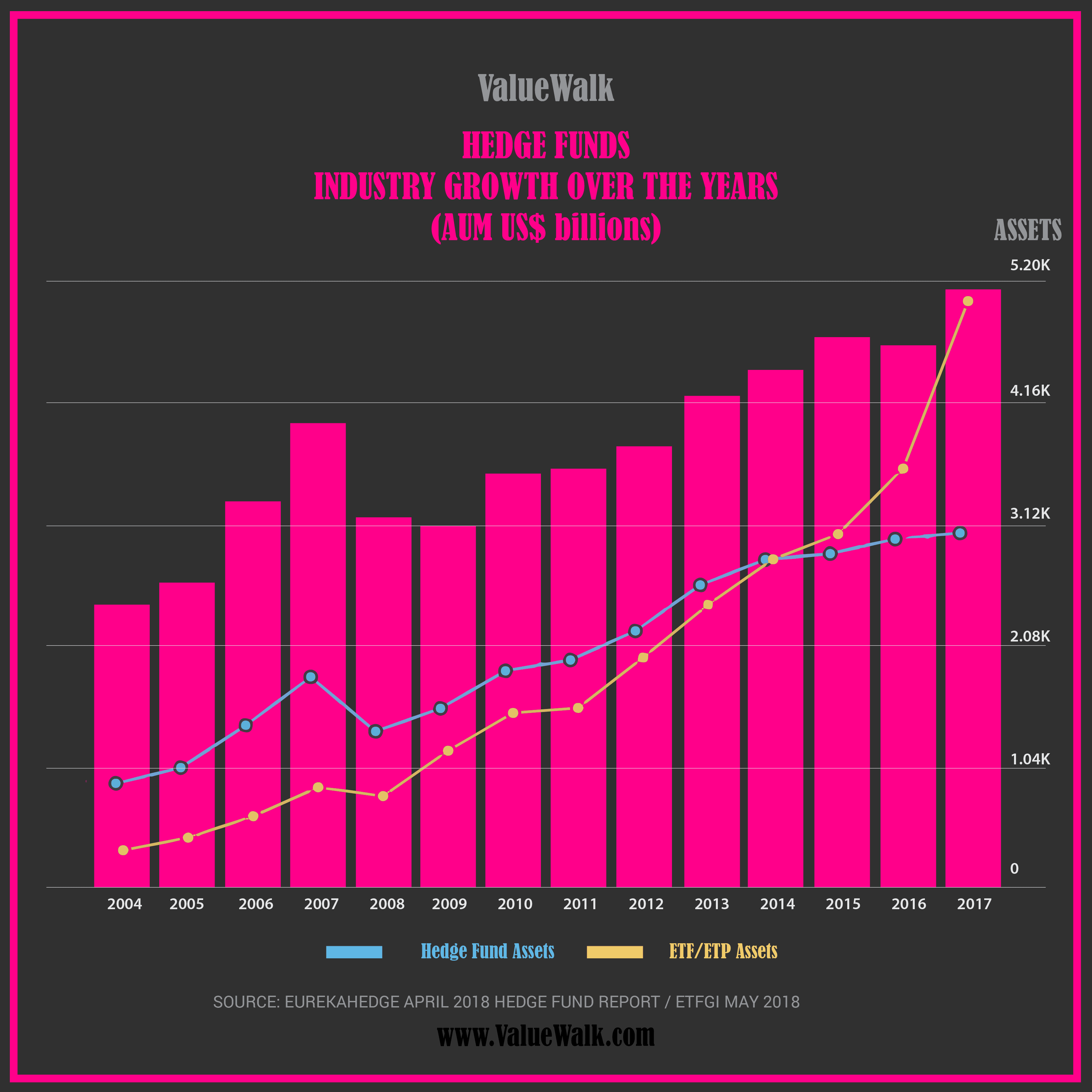Article By Alex Gavrish, Etalon Capital Ltd; author of “Story Investing”
I believe many “copycat” investors were greatly disappointed by the latest quarterly holdings disclosures by activist investors and other hedge funds. It seems that there were almost no new important positions initiated by them in the first quarter of 2018.
Q1 hedge fund letters, conference, scoops etc, Also read Lear Capita
Overall, the latest filings and the lack of “meat” in them for investors who follow activists and hedge funds, and planned to game the system easily is the result of a broader trend in the market.
First, according to law firm Morgan Lewis, high impact activism campaigns declined in 2017 to the lowest level since 2013. For example, there were 80 proxy fights in 2017, down from a high of 133 in 2009. So far, it seems that the same trend continues in 2018.
Second, according to the Activist Investing Annual Review published by Activist Insight, in 2017 activists increasingly targeted large capitalization companies. A good example here is the large investment into shares of Nestle by Third Point. Other high-profile activists and hedge funds focused on such companies as Procter & Gamble, General Motors, Automatic Data Processing.
I think that this trend reflects a natural lack of attractive mid-cap targets after a great wave of activism over the past few years. According to Activist Insight, only 15% of activist targets in 2017 were mid-cap companies.
Third, a growing involvement by American investors in the European market. A good example here is current involvement by activists in the British company Whitbread plc. Hedge fund Sachem Head Capital Management initiated a position and is agitating for separation of the coffee business. They were promptly followed by Elliott Advisors, which acquired a 6% stake in the company.
All of these trends prove that U.S. investment opportunity set has decreased greatly. Consequently, “copycat” parasitic investors will find it harder and harder to find good investment ideas. They will have no other choice but to roll up their sleeves and think for themselves. In other words, to put their “skin in the game” again (to borrow the term from Nassim Taleb’s recent and timely book). And it seems that the situation and investment opportunity set in the market is such that until they do it, they can only dream about easy and attractive returns.






